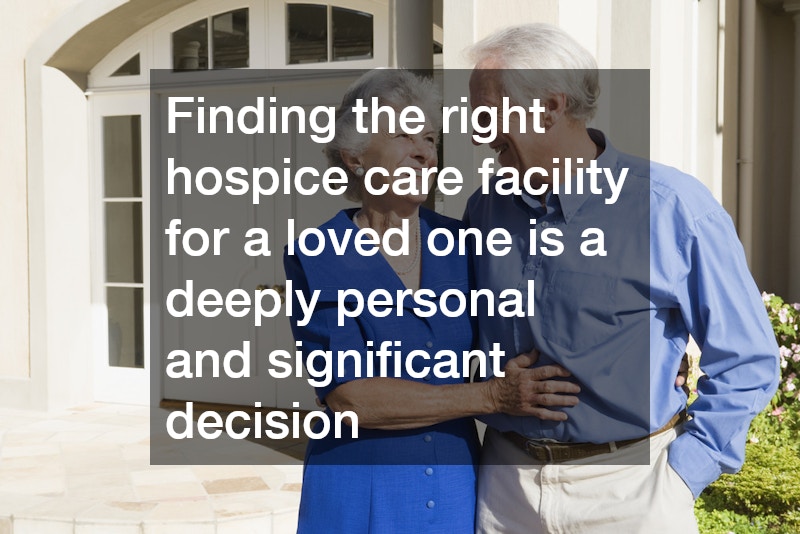
Finding the right hospice care facility for a loved one is a deeply personal and significant decision. This choice impacts their comfort, well-being, and quality of life in their final stages.
With many options available, it’s essential to understand what factors to consider to ensure they receive compassionate, high-quality care.
A hospice care facility provides specialized support for individuals with terminal illnesses, focusing on pain management, emotional well-being, and dignity. The right facility should offer a comfortable environment, skilled caregivers, and personalized care plans. By knowing what to look for, families can feel confident in their decision and provide their loved ones with the best possible care.
Assessing the Quality of Care
One of the most critical aspects of choosing a hospice care facility is evaluating the quality of care provided. This includes the medical support available, staff qualifications, and the overall approach to end-of-life care. A reputable facility should have experienced professionals, including doctors, nurses, and aides, who are trained in pain management and palliative care.
In addition to medical expertise, compassionate caregiving is vital. Staff should be attentive, patient, and dedicated to making residents as comfortable as possible. Observing how caregivers interact with patients can offer insight into the facility’s commitment to providing dignified and respectful care.
Understanding the Services Offered
Hospice care facilities provide a range of services, but not all offer the same level of care. It’s important to review the services provided to ensure they meet your loved one’s specific needs. Common services include pain and symptom management, emotional and spiritual support, and assistance with daily activities.
Many facilities also offer bereavement counseling for families, helping them cope with the emotional challenges of losing a loved one. Some provide specialized care for conditions such as dementia or advanced cancer, which may require additional expertise. By understanding the available services, families can determine whether a facility is equipped to handle their loved one’s needs.
Evaluating the Facility’s Environment
A comfortable and welcoming environment plays a significant role in a patient’s overall well-being. When visiting a hospice care facility, take note of the cleanliness, layout, and overall atmosphere. A home-like setting with private rooms, communal spaces, and outdoor areas can make the experience more pleasant for residents.
Additionally, consider whether the facility encourages family involvement. Some hospice care facilities have open visitation policies, allowing loved ones to spend as much time as possible with the patient. Feeling welcome and supported in the environment can make a difficult time more manageable for everyone involved.
Reviewing Accreditation and Licensing
A reliable hospice care facility should be accredited and licensed by the appropriate state and national organizations. Accreditation from groups such as The Joint Commission or the Accreditation Commission for Health Care (ACHC) signifies that the facility meets high standards of care.
Verifying state licensing ensures the facility complies with legal and medical regulations. Checking online reviews, testimonials, and state inspection reports can provide additional insight into the facility’s reputation. Families should also ask for references from other families who have used the hospice services to gain a better understanding of their experiences.
Considering Costs and Insurance Coverage
The cost of hospice care can vary significantly depending on the facility and services provided. Before making a decision, it’s important to understand the financial aspects and whether insurance, Medicaid, or Medicare covers the expenses. Many hospice care facilities work with insurance providers to reduce out-of-pocket costs for families.
If insurance coverage is limited for a hospice care facility, discussing payment plans or financial assistance options with the facility may help ease the financial burden. Understanding the costs upfront can prevent unexpected expenses and allow families to focus on their loved one’s care.
Seeking Recommendations and Visiting Facilities
Personal recommendations can be invaluable when searching for a hospice care facility. Speaking with doctors, social workers, or friends who have experience with hospice care can provide helpful guidance. Researching multiple facilities and scheduling in-person visits allows families to compare their options firsthand.
Choosing the right hospice care facility is a crucial decision that requires careful consideration of multiple factors. From the quality of medical care to the facility’s environment and cost, each aspect plays a role in ensuring a loved one’s comfort and dignity. Taking the time to research, visit facilities, and ask questions can help families feel confident in their choice.
.



